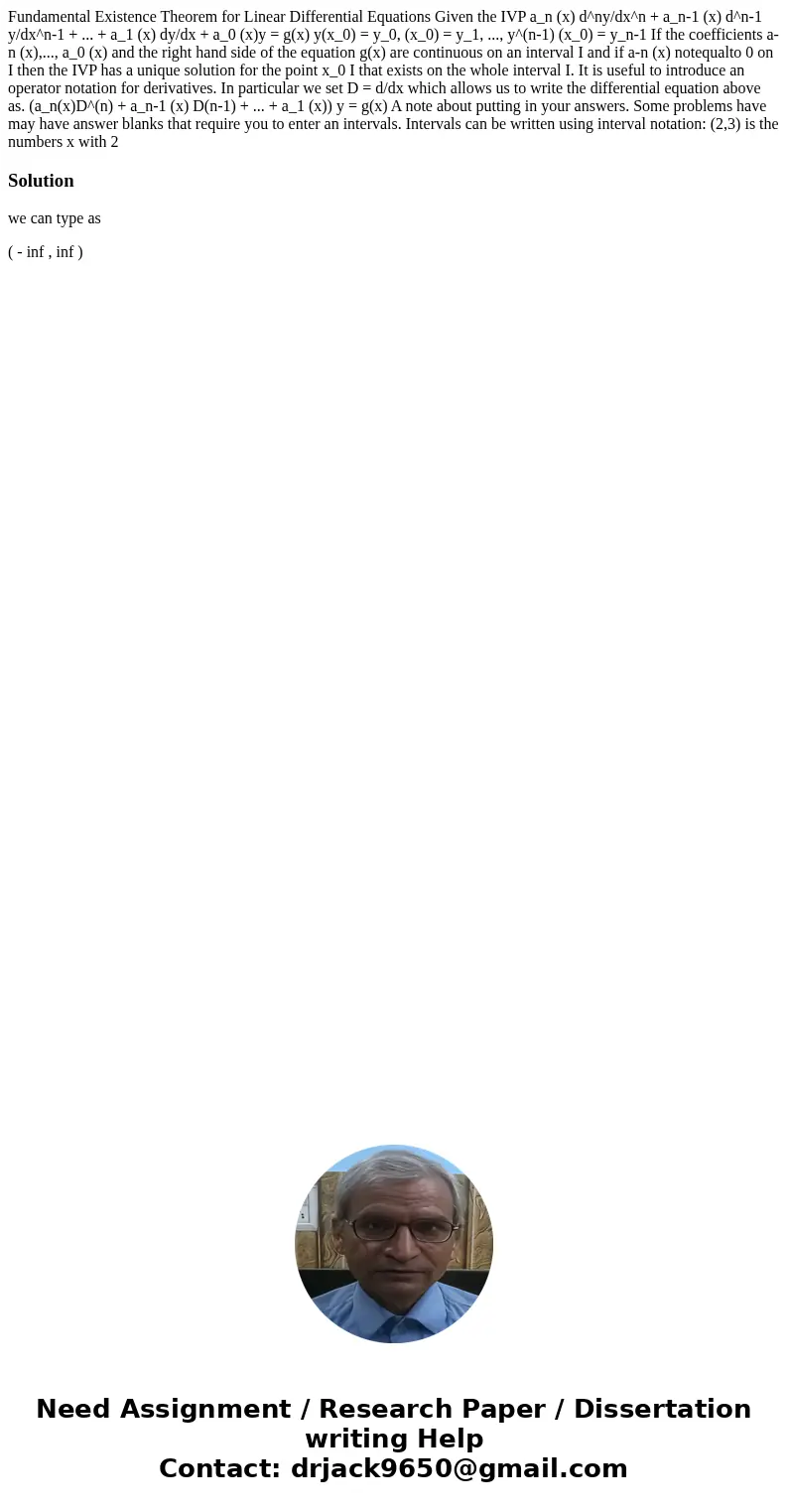Fundamental Existence Theorem for Linear Differential Equati
Fundamental Existence Theorem for Linear Differential Equations Given the IVP a_n (x) d^ny/dx^n + a_n-1 (x) d^n-1 y/dx^n-1 + ... + a_1 (x) dy/dx + a_0 (x)y = g(x) y(x_0) = y_0, (x_0) = y_1, ..., y^(n-1) (x_0) = y_n-1 If the coefficients a-n (x),..., a_0 (x) and the right hand side of the equation g(x) are continuous on an interval I and if a-n (x) notequalto 0 on I then the IVP has a unique solution for the point x_0 I that exists on the whole interval I. It is useful to introduce an operator notation for derivatives. In particular we set D = d/dx which allows us to write the differential equation above as. (a_n(x)D^(n) + a_n-1 (x) D(n-1) + ... + a_1 (x)) y = g(x) A note about putting in your answers. Some problems have may have answer blanks that require you to enter an intervals. Intervals can be written using interval notation: (2,3) is the numbers x with 2 
Solution
we can type as
( - inf , inf )

 Homework Sourse
Homework Sourse